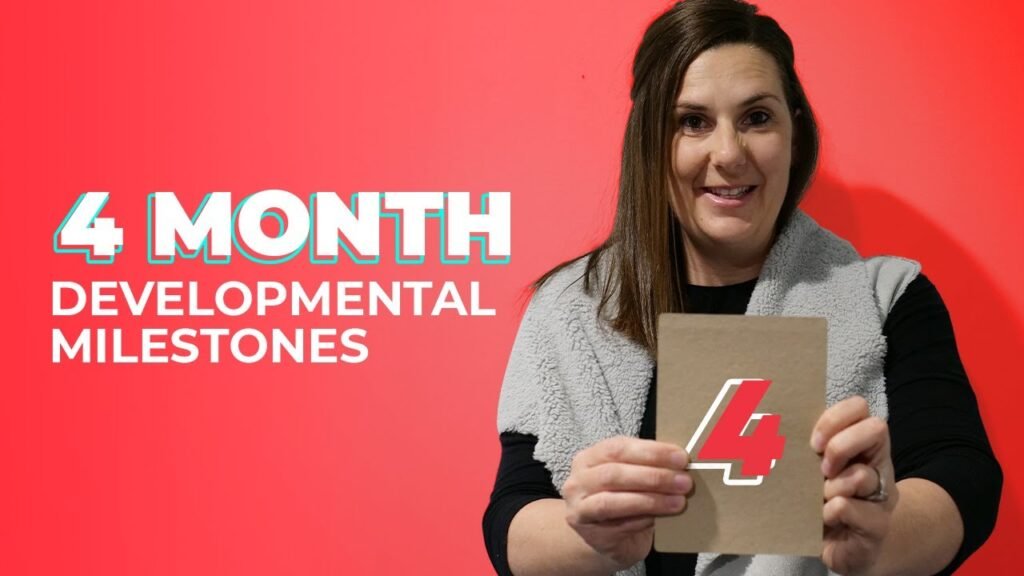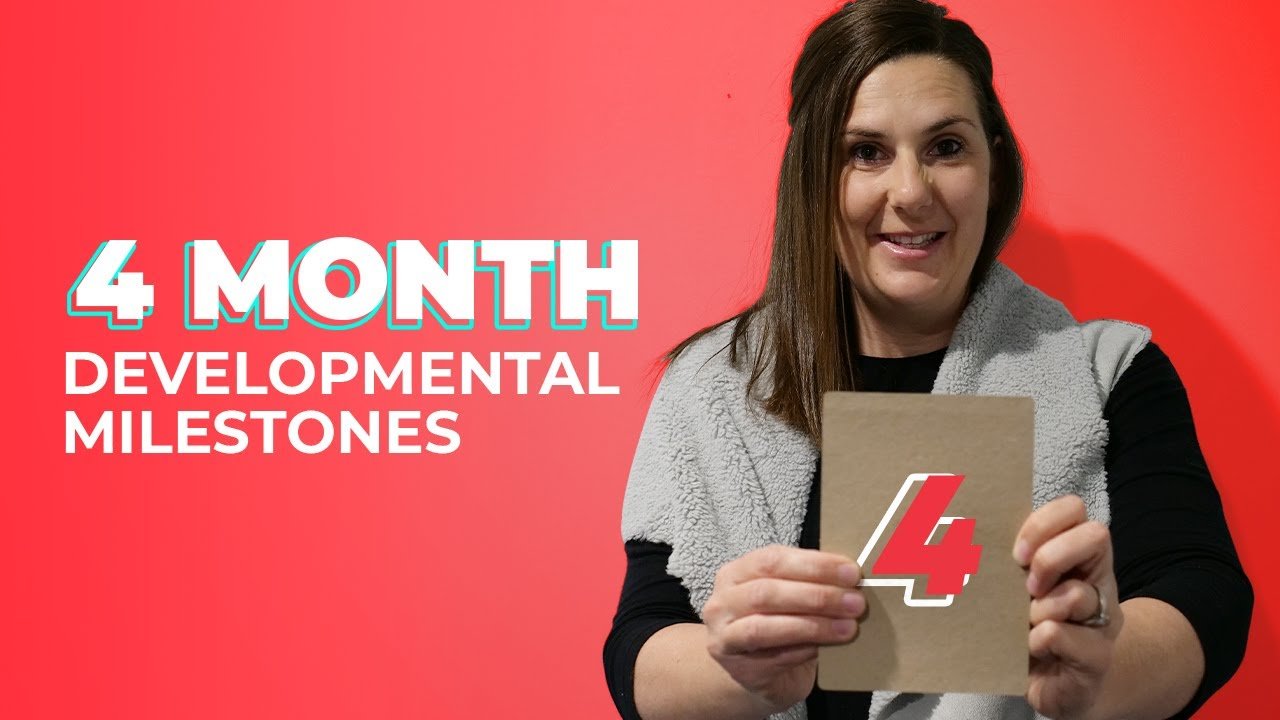Got a 4-month-old baby and unsure about their developmental milestones? This video by Emma Hubbard can help! Learn about what to expect at 4 months old and get a free developmental milestone chart for 0-12 months. Emma, a pediatric occupational therapist and mom, shares tips to make parenting easier and ensure your baby gets the best start in life.
Not sure what your four-month-old baby should be doing or what to expect? Stay tuned as Emma discusses the developmental milestones you should be anticipating. Whether it’s gross motor skills, fine motor skills, social and emotional development, language and communication skills, or sleep patterns, Emma’s video covers everything you need to know for your baby’s development at four months old.

Gross Motor Development
At four months old, your baby will start showing significant progress in their gross motor skills, especially in core strength development. When lying on their back, you will notice that your baby can now keep their head in the middle of their body and bring their hands to the middle as well. This is an exciting milestone as they are developing the core strength needed to bring their hands to their knees and even enjoy kicking their legs. Additionally, when on their tummy, your baby will be able to lift their head from 45 to 90 degrees and support their weight through their forearms. They will also exhibit the ability to turn their head to follow a toy and may start rolling from their tummy to their back.
Fine Motor Skills
In terms of fine motor skills, your four-month-old will start to demonstrate the ulnar palmer grasp, where they reach out with both hands to grab a toy using their palm and fingers. They can now hold onto and retain a toy for a period of time, shaking it and bringing it up to their mouth. It’s an exciting time as they explore their dexterity by bringing their fingers to the middle of their body and manipulating objects.
Social and Emotional Development
Your baby’s social and emotional development is also a key area of focus at four months old. You will notice your baby smiling spontaneously and enjoying interactions with people, including copying facial expressions like puckering their lips or smiling. They will start recognizing familiar faces and responding to them, showing an early sign of social awareness.
Language and Communication Skills
In terms of language and communication skills, your four-month-old will begin babbling, which is an essential step towards language development. They may also start differentiating their cries to indicate their needs, such as hunger, tiredness, or discomfort. Additionally, some babies might laugh for the first time around this age, showing a joyful response to stimuli.
Sleep Patterns
While not a developmental milestone, sleep patterns are crucial for your baby’s overall well-being. At four months old, your baby will sleep approximately 13.5 to 15 hours a day, with a set bedtime. They may have one to two feeds during the night and sleep for 10 to 12 hours without waking. As they transition from four naps to three during the day, they may experience short naps but should be awake for two to two and a half hours between their naps.
Developmental Milestone Overview
In summary, at four months old, your baby is reaching significant milestones in gross and fine motor skills, social and emotional development, language and communication skills, and establishing healthy sleep patterns. These milestones are essential for their overall growth and development, and tracking their progress is vital to ensure they are on the right path. If you have any concerns about your baby’s development, do not hesitate to seek professional help from their doctor or a pediatrician.
Parenting Tips
To support your baby’s development, it’s essential to encourage physical activities that promote gross and fine motor skills. Create a stimulating environment with age-appropriate toys and activities that engage all their senses. Reading and talking to your baby regularly can also aid in their language development and emotional bonding with you.
Healthy Child Development
Maintaining a proper nutrition and feeding schedule is crucial for your baby’s growth and overall health. Monitor their growth and weight gain to ensure they are meeting their developmental milestones. Tummy time is essential for strengthening their neck and core muscles, so make sure to incorporate this into their daily routine.
Interactive Play Ideas
Engage your baby in interactive play to stimulate their senses and promote cognitive development. Use sensory toys to encourage exploration and discovery. Playing games like peekaboo can enhance their understanding of object permanence, while music and movement activities can stimulate their auditory and motor skills.
Conclusion
Tracking your baby’s developmental milestones is key to understanding their progress and ensuring they are meeting their age-appropriate goals. Celebrate every achievement as your baby grows and develops, and provide support along their developmental journey. By offering a nurturing and stimulating environment, you are setting the foundation for your baby to thrive and reach their full potential.

